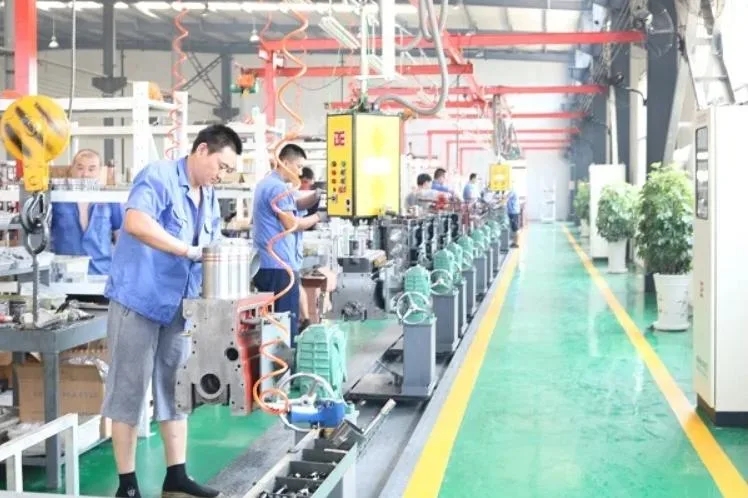Introduction
Diesel generators have long been recognized as reliable sources of backup power, particularly for critical infrastructure and industrial applications. One of the key advantages of diesel generators is their ability to handle transient loads effectively. Transient loads refer to sudden, short-term spikes in power demand that can occur in various situations, such as starting up large motors, switching on heavy machinery, or sudden power surges in the grid. In this article, we will explore the characteristics of transient loads, the challenges they pose to power systems, and how diesel generators are well-suited to address these challenges.
Understanding Transient Loads
Transients loads are temporary increases in power demand that exceed the normal operating capacity of a power system. These sudden spikes in power requirements can place significant stress on the system, leading to voltage fluctuations, frequency deviations, and potential equipment damage. Transient loads can be classified into two main categories:
1. Portable diesel generator for agriculture : These occur when electrical equipment with high starting currents, such as motors, transformers, or capacitors, are switched on. The sudden rush of current can cause voltage dips and put strain on the system.
2. Voltage Surges: These are sudden increases in voltage that can occur due to lightning strikes, grid disturbances, or switching operations. Voltage surges can damage sensitive electronic equipment and disrupt the normal operation of the system.

Challenges Posed by Transient Loads
Transient loads pose several challenges to power systems, including:
1. Voltage Instability: Sudden changes in power demand can lead to voltage fluctuations, causing equipment malfunctions and potential downtime.
2. Frequency Variations: Transient loads can also impact the frequency of the power supply, leading to instability in the system and affecting the synchronization of connected equipment.
3. Overloading: The sudden increase in power demand can overload the power system, leading to overheating of equipment, tripping of circuit breakers, and potential damage to connected devices.
4. Power Quality Issues: Transient loads can result in poor power quality, including harmonics, voltage sags, and other disturbances that can affect the performance of sensitive equipment.
Diesel Generators as a Solution for Transient Loads
Diesel generators are well-suited to address the challenges posed by transient loads due to their robust design, high power output, and quick response time. Here are some key reasons why diesel generators are an optimal solution for handling transient loads:
1. High Power Output: Diesel generators are capable of providing high power output, making them suitable for meeting the sudden spikes in power demand associated with transient loads. Their robust engines and alternators can deliver the required power quickly and efficiently.
2. Fast Start-Up Time: Diesel generators have quick start-up times, allowing them to respond rapidly to changes in power demand. This makes them ideal for handling transient loads that require immediate power supply.
3. Reliable Operation: Diesel generators are known for their reliability and durability, making them suitable for critical applications where uninterrupted power supply is essential. Their robust construction and simple mechanical design ensure consistent performance in challenging conditions.
4. Fuel Efficiency: Diesel generators are more fuel-efficient compared to other types of generators, providing cost-effective power solutions for handling transient loads. Their efficient fuel consumption helps reduce operating costs and ensures long-term reliability.
5. Load Handling Capacity: Diesel generators can handle varying loads effectively, making them versatile for different applications with fluctuating power requirements. They can adjust their power output based on the load demand, ensuring optimal performance and efficiency.
Case Studies and Applications
Diesel generators are widely used in various industries and applications to handle transient loads effectively. Here are some case studies highlighting the successful deployment of diesel generators for managing transient loads:
1. Industrial Manufacturing: A large manufacturing plant experienced frequent voltage dips and inrush currents during the start-up of heavy machinery. By installing a diesel generator with sufficient capacity, the plant was able to stabilize its power supply and prevent equipment damage.
2. Data Centers: Data centers require uninterrupted power supply to ensure the continuous operation of servers and IT equipment. Diesel generators are commonly used as backup power sources to handle transient loads and provide seamless power transfer during grid outages.
3. Hospitals: Hospitals rely on reliable power supply for critical equipment, such as life support systems, diagnostic machines, and lighting. Diesel generators play a vital role in ensuring uninterrupted power supply during emergencies and handling transient loads effectively.
4. Telecommunication Towers: Telecommunication towers require stable power supply to maintain network connectivity and communication services. Diesel generators are deployed at remote sites to handle transient loads and provide backup power in case of grid failures.
Conclusion
Diesel generators are reliable and efficient solutions for handling transient loads in diverse applications, including industrial, commercial, and critical infrastructure. Their high power output, fast response time, and robust design make them well-suited to address the challenges posed by sudden spikes in power demand. By understanding the characteristics of transient loads and leveraging the capabilities of diesel generators, organizations can ensure stable and uninterrupted power supply for their operations. Diesel generators continue to play a crucial role in maintaining power stability and reliability in the face of dynamic power requirements and grid disturbances.
